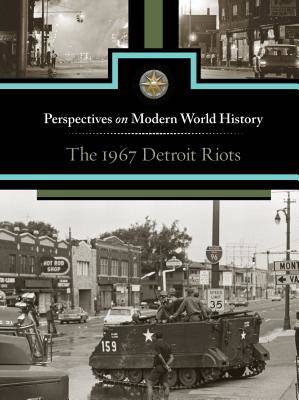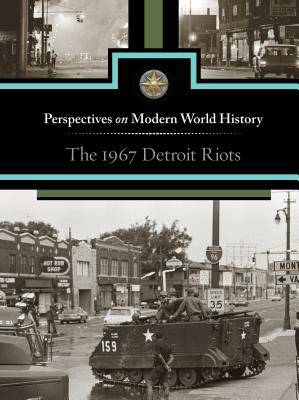
Je cadeautjes zeker op tijd in huis hebben voor de feestdagen? Kom langs in onze winkels en vind het perfecte geschenk!
- Afhalen na 1 uur in een winkel met voorraad
- Gratis thuislevering in België vanaf € 30
- Ruim aanbod met 7 miljoen producten
Je cadeautjes zeker op tijd in huis hebben voor de feestdagen? Kom langs in onze winkels en vind het perfecte geschenk!
- Afhalen na 1 uur in een winkel met voorraad
- Gratis thuislevering in België vanaf € 30
- Ruim aanbod met 7 miljoen producten
Zoeken
The 1967 Detroit Riots
€ 75,45
+ 150 punten
Omschrijving
Created from a simple police raid of an unlicensed, after-hours bar, the aftermath was 43 dead, 1,189 injured, 7,200 arrests, and more than 2,000 buildings destroyed. This is an important volume to give to your readers so that they understand the factors that lead up to an event like this, and understand its controversies. The essays collected here will activate your reader's critical thinking skills, allowing them to question their world in light of the riots. Essayist Lois H. Smith reports that the Detroit Riots show the urgent need for elected urban black leadership. Lyndon Baines Johnson's essay explains why he sent troops to Detroit. H. Rap Brown states that minority groups must revolt against oppression. Two essays debate whether the riots actually led to the crisis that Detroit is in now. Personal first-hand accounts round out this book, making sure that your readers obtain a feeling for the event as well.
Specificaties
Betrokkenen
- Uitgeverij:
Inhoud
- Aantal bladzijden:
- 184
- Taal:
- Engels
- Reeks:
Eigenschappen
- Productcode (EAN):
- 9780737763621
- Verschijningsdatum:
- 23/02/2013
- Uitvoering:
- Hardcover
- Formaat:
- Bibliotheekbinding
- Afmetingen:
- 175 mm x 231 mm
- Gewicht:
- 521 g

Alleen bij Standaard Boekhandel
+ 150 punten op je klantenkaart van Standaard Boekhandel
Beoordelingen
We publiceren alleen reviews die voldoen aan de voorwaarden voor reviews. Bekijk onze voorwaarden voor reviews.








